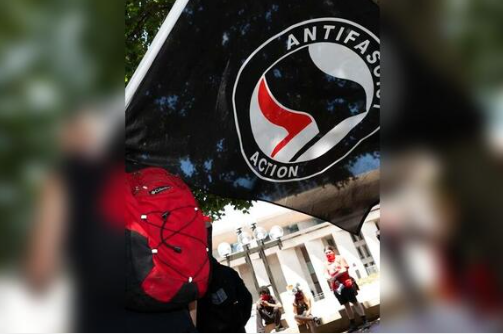Reports circulating in recent days claim that Antifa activists in Portland have allegedly published a so-called “hit list” targeting journalists and right-wing media figures who have covered anti-ICE demonstrations. The list reportedly includes photos, ages, and “threat levels” of the individuals named. Those allegedly targeted have reported incidents of harassment, online doxxing, and physical assaults.
While the authenticity of the alleged list remains under scrutiny, the story has ignited heated debate about media safety, political extremism, and misinformation.
Mixed Reactions From the Public
Following the report’s release three days ago, NewsBreak users have voiced a wide range of opinions. Many expressed concern about journalists’ safety and the potential erosion of free speech, viewing the alleged list as a serious threat.
Also Read
“Time to dismantle this radical group,” one commenter wrote, arguing that Antifa represents a danger to democratic principles and should be disbanded.
Others, however, strongly questioned the credibility of the report, asserting that Antifa is not a structured organization capable of creating such a list. Some commenters claimed the story might be exaggerated or politically motivated.
“ANTIFA = Anti-Fascist. It’s an idea, not a group. FAKE NEWS,” one user commented, while another added, “If this is true, why is only a right-wing commentator in a right-wing paper talking about it?”
These users urged caution before accepting the story as fact, highlighting the need for verified evidence and transparency from media outlets.
Skepticism and Political Context
A number of commenters dismissed the claims outright, suggesting the report might be part of partisan media framing.
“I believe this as much as the Moon is made of cheese,” one user wrote, capturing the skepticism shared by many readers.
Others pointed out that Antifa’s stated opposition has traditionally been directed toward far-right and anti-immigrant groups, not journalists.
“Antifa is against MAGA and ICE, not journalists,” one reader stated. Another added, “Don’t worry — they’re mostly nonviolent.”
These responses indicate a perception among some readers that Antifa’s activities are often portrayed unfairly in the media and that coverage tends to amplify political tensions rather than clarify facts.
Ongoing Questions About Accuracy and Accountability
The public’s divided response underscores how politically charged narratives can quickly spark controversy in today’s information environment. Supporters of the journalists named in the alleged list are demanding stronger protections for media workers and clearer condemnation of political intimidation. Meanwhile, skeptics argue that without verifiable evidence, such claims risk fueling unnecessary fear and polarization.
The Call for Caution and Verification
As discussions continue online, readers from both sides agree on one point: the importance of fact-checking and seeking reliable sources before drawing conclusions.
The debate reflects the broader struggle to navigate truth, bias, and accountability in an age of social media amplification. Whether the alleged “hit list” proves real or not, the controversy highlights the urgent need for careful reporting and responsible public dialogue.
What Do You Think?
Do you believe Antifa poses a genuine threat to journalists and right-wing media figures, or do you think this story may have been exaggerated? Share your perspective respectfully — and remember, fact-checking and critical thinking are essential before forming an opinion.












